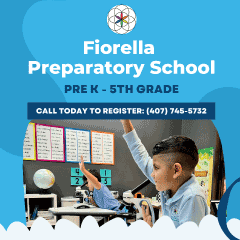Withstanding the Winter
While the holidays are a cheerful time for some, many others face a season of gloominess, which they may feel is at odds with their surroundings.

During the holiday season, many people struggle with a heightened sense of anxiety and depression. Despite winter’s joyous attribution, the holidays instantly trigger memories, and the focus on family and friends may instigate reflection on those who are no longer with us.
Grief or extra stress combined with a preexisting mental condition makes coping all the more difficult. In these scenarios, multiple factors need to be addressed to provide comprehensive relief. The days darkening earlier leading to less sunlight, colder weather and overall lack of life within nature can contribute as well. Furthermore, the period after the holidays end can also cause negative feelings after expending money, energy and the prospect of heading back to the mundane.
A person who is suffering because of those emotional triggers can feel like they have to hide negative feelings or that they are not entitled to those negative feelings because of the perceived happiness around them. Of course, this is not the case, and the difficulties people face approaching, during and after the holidays are extremely common.
“Holidays are rough on a lot of people, whether it is because they are missing their loved ones or dealing with family dynamics,” explains Randee Poeppelman, LCSW, behavioral health coordinator at Community Health Centers, Inc. “I always encourage people to be mindful of how they are feeling and find healthy coping strategies like meditation, reaching out to others and caring for self in these moments. It is OK to feel sad and finding healthy ways to cope with these situations are your best strategies against depression, especially during the holidays.”
As discussions about mental wellness have become popularized, help and education are more accessible than ever before. These resources have adapted to accommodate a multitude of situations. It is important for individuals to know that their external and internal struggles are not singular, but it is also vital to seek specialized care in order to receive the most relevant coping mechanisms, medicine and other forms of support.
“At Central Florida Behavioral Hospital, we are committed to meeting the mental health needs of families in our community, delivering the highest quality of care through a trauma-informed framework,” says Penni Worley, CEO of Central Florida Behavioral Hospital.
However, though recommended, this is not always realistic for a multitude of reasons, including societal or perceived stigma, cost, transportation and time constraints that may prevent individuals from seeking help.
“In the past counseling and mental health intervention was out of reach for most, but with insurance some of the gaps have closed. … Many employers offer health care plans that include mental health benefits and coverage. Many, though, due to social-economic factors still cannot afford mental health care coverage,” explains Polycarpe’s Chief Operating Officer Patrick Delerme. “At Polycarpe, through our mental health acceptance outreach program, we are closing the gap of low utilization [of community mental health services] and high stigma by promoting mental health matters as a concern of all people.”
Professional support is always best, but a support system of loved ones can also be key to getting through every day, setting goals and finding hope. If a loved one is struggling with their mental health, providing a listening ear without judgment can go a long way in their healing journey.
“The best advice I could give is to be open-minded. What they are feeling is what they are feeling, even if you don’t agree with what they are feeling. Sometimes, it is just about being heard and understood as much as possible,” says Poeppelman.
“Allow them to express their need for intervention first and what they think would be a good solution for them to resolve the struggle. Start with the least restrictive setting of intervention. [For] youth, start with an afterschool extracurricular program, a mentor, counseling, medication management, etc. For adults, maybe a social club or counseling,” adds Delerme.
The professionals consulted advise that those in immediate crisis can call 211 for United Way, a community support helpline, or 988, a suicide and crisis lifeline. A continuous support plan with an organization or a professional is advised for the long-term, but crisis incidents may happen in the middle of the night, for instance, when their offices are closed. An unexpected incident may also occur when one does not have the finances or transportation to seek a professional. Additionally, members of the LGBTQIA+ community can consult The Trevor Project for confidential, specialized support 24/7 online on the nonprofit’s website, by texting “START” to 678-678, or over the phone by calling (866) 488-7386.
Resources
Central Florida Behavioral Hospital
Orlando
(407) 370-0111
CentralFloridaBehavioral.com
Community Health Centers
Multiple locations
(407) 905-8827
CHCFL.org
Polycarpe
Orlando
(407) 720- 4739
Polycarpe.org











